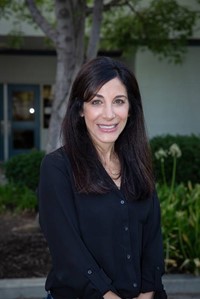Share
|
Getting your Trinity Audio player ready...
|
The new year offers an opportunity for a fresh start, growth, and success. It also is a time of reflection — a chance to look back and assess.
GV Wire reporters and videographers were asked to identify the Difference Makers on their beats for 2023.
Many readers will recognize some of the names. Some regular consumers of GV Wire content will say that they’ve never heard of this or that person before. And some of the choices will spark vigorous debate.
The list is by no means complete. While Fresno and the surrounding communities have their share of challenges, we’re blessed with legions of residents who go out and do their best every day.
The Difference Makers
JOHNNY GARZA — ADVENTIST HEALTH HANFORD
Being a nurse gives Visalia resident Johnny Garza a chance to give back, he says.
“That’s the best thing about this career that I’m in,” Garza said. “Whether it be nursing or anesthesia, I think there’s always opportunities to use our skill sets to provide for others.”
As a nurse anesthesiologist, Garza sees patients preparing for surgery. For the 418 people in Jamaica that Garza helped prep for eye surgeries in June, it meant for them the first step in restoring their vision.
Garza, along with a host of other doctors and nurses from the U.S. and India, spent three days in Jamaica in 2023, providing surgeries for people with glaucoma or cataracts.
The trip to Jamaica marked Garza’s third medical mission. He also has provided medical care in Ecuador and Honduras and traveled to Peru to provide school supplies.
Next year, he hopes to return to Jamaica to do more work for people there.
“By being able to go on these mission trips once a year, once every other year, it’s revitalizing. It’s encouraging,” Garza said.
— Edward Smith
GEORGEANNE WHITE — CITY OF FRESNO
Georgeanne White may be the most powerful non-elected official in Fresno.
She serves as Mayor Jerry Dyer’s city manager. It is her job to carry out the administration’s policy, overseeing a $1.87 billion budget and 4,500 employees.
“I run the business aspect of the city, making sure that we have the right people, the right dollars, and the right places in order for our residents to receive services,” White said, describing her job.
That means lots of meetings — White jokes she is a “professional meeting attender” — with city staff, the city council, and business leaders.
Dealing with the seven elected city councilmembers can present challenges. She clashes with the council occasionally during meetings — she even brought a bell to ring when a member said something inaccurate.
“People think we all don’t get along. I think that 95% of the time we’re on the same page of how things are being handled. So that is also very helpful,” White said.
A veteran of City Hall administration for more than 20 years, White HAS spent the last three as Dyer’s city manager. She has avoided economic catastrophes and civil unrest that prior administrations endured. She still has worries.
“Every crisis is different,” White said. “Public safety issues — making sure that our police and firefighters are safe and not having officer-involved shootings — budget and cybersecurity are the three things that keep me up at night.”
Her concern for 2024 is the budget, citing the projected $60 billion state shortfall. She also said sales tax revenues are down.
One of the most difficult aspects of the job is spending the money that comes in. Fresno recently received $250 million from the state for downtown infrastructure.
“You don’t just drop that kind of money into an organization and think that you can staff up on a dime like that. So, it is a lot of work to get the people hired in the right positions to get that money out working for the people,” White said.
White admits the job can be stressful, but relies on her management team and family to carry her through.
“My husband, who is very supportive, puts up with my long hours,” White said, adding that being an empty nester helps. “That really goes a long way. I think if I didn’t have that, I would not be able to handle the stress.”
— David Taub

CACTUS SAM HARRIS — UNIVERSITY PRESBYTERIAN CHURCH
If you’re lucky enough to be in the Warnors Theatre in downtown Fresno when the mighty Robert Morton pipe organ rises out of the pit, be sure to check out the organist’s footwear. If he’s wearing a pair of sparkly purple shoes, you’ll be seeing one of the region’s preeminent organists, Cactus Sam Harris.
But Harris is more than a performer. As director of worship and the arts at University Presbyterian Church, Harris has made it his mission to expand access to music of all types at the Cedar Avenue church, which regularly hosts groups such as Soli Deo Gloria, the Fresno Folklore Society, and the Tower Quartet, as well as guest artists and even music students needing a venue for their recitals.
Fresno has several large performance spaces like the Saroyan Theatre downtown and the Shaghoian Performing Arts Center on the Clovis North Campus. “But there’s a lot of smaller groups and instrumental chamber groups that need a space to perform,” said Harris, who is also an adjunct instructor at Clovis Community College. “Us being kind of being centrally located and having a beautiful sanctuary with good acoustics, I wanted to be able to provide that for the community.
“Especially going through Fresno State and a lot of my peers that I went to school with, they’re doing professional ensembles. The Tower Quartet, for example, they’ll have their concerts here and then they’ll come and play for me on a Sunday (church service). So it’s a win-win for everybody.”

Harris also recognizes that church choirs tend to be smaller these days and less apt to take on more complicated pieces of classical music, so he’s inviting choirs to collaborate in a community ensemble. Last spring, they performed Faure’s “Requiem.” In June they will perform Schubert’s “Mass in G.”
“I’m trying to provide an opportunity for these community singers that aren’t in the larger community choirs like Fresno (Community Chorus) or the Clovis one and want to perform and appreciate good sacred music,” he said.
Harris, now a father of three young kids, grew up on the Paso Robles ranch where his family has their event center, Harris Stage Lines, and where he entertained with rope tricks. It’s now also home to a 1922 Wurlitzer organ that he bought in Visalia, moved to the ranch, and restored.
While he was a student at Fresno State Harris was probably best known as the marching band’s drum major, and he initially considered a career as a high school band director. Growing up, his instrument of choice had been the saxophone, but that changed when he sat down at the pipe organ in Fresno State’s music hall and became enamored.
The console of a pipe organ has been compared to the cockpit of a jet plane, with a variety of buttons, as many as seven keyboards known as manuals, and the pedalboard – a keyboard for the feet. The organist, by pushing buttons, can bring forth a variety of sounds and music, making some keys sound like trumpets, violins, or percussion, and combining to sound like a small orchestra. The role of those movie palace organs was to accompany vaudeville acts as well as provide the soundtrack for silent movies.
And what’s up with those sparkly shoes?
“Organists do wear special shoes most of the time for playing. They kind of have a heel on them and a soft suede bottom so you can feel around on the pedals,” he said. “But kind of with the rhinestone cowboy background, I always thought, well, you need something. People need something to look at. You can’t be a boring organist.
“Most people hear organ, they think, ‘Oh, that’s boring.’ So I need a little excitement there.”
— Nancy Price
WENDY McCULLEY — FRESNO UNIFIED SCHOOL DISTRICT
Wendy McCulley could well be called Fresno Unified’s “Start-Up Queen.”
She’s the founding director of two important district initiatives, the African American Academic Accelerate (A4) program and the Foundation for Fresno Unified Schools. Both jobs have made use of McCulley’s background in business and desire to improve educational opportunities for Fresno Unified kids.
She knows firsthand what it’s like not to have a lot of financial resources. McCulley, a native of Memphis, Tennessee, came from a low-income family who were staunch believers in the power of education. After she earned her bachelor’s at Harvard and MBA at the University of Pennsylvania’s Wharton School of Business, she worked in the business world until she realized that she wanted a “more purposeful” life and career, with a “legacy that reflects the sacrifices my family had made for education.” So she returned to the University of Pennsylvania to earn a graduate degree in education and then learned about a fellowship program that was placing MBAs into educational and government nonprofits to encourage innovation.
The fellowship brought her to Fresno Unified, then the state’s fourth-largest district, and within a year she applied to be the first executive director of a new program, the Office of African American Academic Acceleration, or A4.
It was exciting to build a new program that would try different strategies and tactics to boost the academic performance of Black students, who have some of the lowest test scores and highest dropout rates among Fresno Unified students.
McCulley said she was particularly proud of the high participation rate among parents – 98% after the pandemic, a strong indication of how concerned parents were about learning losses that occurred when schools were closed. McCulley said she was heartened this year when Superintendent Bob Nelson announced the district’s ambitious Literacy Initiative to have all kids reading by the end of first grade.
“Six years ago, I was on the literacy bandwagon saying that if these kids can’t read, I can’t academically accelerate them,” McCulley said. “Even when you look at what’s happening, social, emotional, a lot of that has roots in these kids being in a classroom and not being able to access information, to learn and to progress and to engage in a meaningful way. So my whole thing was literacy, literacy, literacy from the beginning.”
Building a diversity/equity/inclusion program from the ground up, growing the staff from 1 to 17 and the annual budget from $1 million to $6 million, started to take its toll, so McCulley asked Nelson if he had other start-up opportunities he was considering. “He said, ‘A foundation’ and I said, ‘OK, I can create that,’” she recalled.

Initially, McCulley was overseeing the A4 program and the district’s “return on investment” assessment of academic and other programs, all while laying the groundwork for the new Foundation for Fresno Unified Schools. The district already had a foundation that was run through the Central Valley Community Foundation, with contributions from district employees that helped fund student scholarships. By contrast, Clovis and Central districts and the Fresno County Superintendent of Schools Office have for years had separate nonprofit foundations that attract community involvement and support, and McCulley’s goal is to build something similar for Fresno Unified.
She was soon able to put her full attention on getting the new foundation up and running as the district’s chief engagement and external partnerships officer and the foundation’s president and CEO.
And it didn’t take long for the foundation to catch the eye of one very private, and very wealthy, benefactor. The district announced in October 2022 that billionaire philanthropist MacKenzie Scott, former wife of Amazon founder Jeff Bezos, was donating $20 million to the foundation.
McCulley isn’t resting on that nest egg – she has overseen fundraising galas that raised more than $650,000 for student scholarships, partnership opportunities for businesses to support schools and individual teachers, career clothing closets for students heading to college or their first job interview, and corporate mentoring opportunities.
“It’s a nonprofit, but I always view it as a business, because just like A4, I know I have to show tangible gains for kids,” she said.
“How I measure my own success is, tangibly, am I creating a department or structures or programs that are going to benefit kids in the long run, and for the long run? I don’t want short-term successes. Because the situation we’re in, where our kids are in literacy and math and poverty, those require long-term solutions that work consistently.”
— Nancy Price
TYLER RIBEIRO — RIB-ARROW DAIRY
When 2023’s March weather suddenly shifted from snow to sun, the record amounts of water in the Central Sierra Nevada Mountains had to go somewhere.

When March rains threatened tens of thousands of Tulare dairy cattle, Tyler Ribeiro sprang into action.
And for the tens of thousands of cows in Tulare, it took an entire community to keep the animals from drowning.
Dairy farmers juggled protecting their herds and those of their neighbors. When the water broke into one of dairyman Tyler Ribeiro’s neighbor’s facilities near Tulare, the industry came together to rescue the cows.
“The next morning, man, it sounded like thunder coming down the road — the amount of trailers coming down the road,” Ribeiro said.
Cows ended up in trailers and at dairies of people he had never met. And, one dairy owner remodeled his barn just to take in the cows and get them milking to minimize losses, Ribeiro said.
The dairy operators still get together and reminisce, Ribeiro said.
“It was terrible, it was exciting, it was not something you want to do again,” Ribeiro said. “But the bond that we all had doing it was forged in fire. Forged in water, I guess you could say.”
— Edward Smith
MIKE “OZ” OSEGUEDA — FRESNO STREET EATS
Mike Osegueda started Fresno Street Eats in 2019 as a way to showcase Fresno’s diverse food truck scene.
The brand began with monthly food truck features at breweries such as Tioga Sequoia Brewing Co. in downtown Fresno.
After the pandemic hit and restaurants had to shut down, the mission changed. Osegueda and a number of his team lost jobs. They turned their focus to the organization.
“That started with us just creating these food truck pop-ups in various parts of town then partnering with businesses to bring food trucks to them for lunch,” Osegueda said. “That got us into catering and, you know, kind of everything from there.”
Now, the brand works with 100 different vendors. They do food truck events every single day at nearly 35 locations a week. With a dozen food trucks at any one event, the community loves the variety, Osegueda said.
“We essentially built a marketplace for them,” Osegueda said. “We’ve seen a lot of trucks that have started just because they know there’s something like Fresno Street Eats where they can go and work every single day and we provide them opportunities and places to go.”
— Edward Smith
SUSAN WITTRUP — FRESNO UNIFIED SCHOOL DISTRICT
Susan Wittrup pledged to visit all the schools in the Bullard area if she was elected to the Fresno Unified School Board in November 2022, and not just once.
Wittrup, who retired as a school psychologist for the district after a 37-year career, wanted to see the schools through two lenses: One that would focus on academics, the other taking a close look at each school’s facilities.
So it was somewhat gratifying when she recently had breakfast with a Bullard region principal who shared that before Wittrup joined the School Board, he and other elementary school principals never felt they had had a board member’s attention or focus.

Wittrup, who was unanimously elected board clerk by her fellow trustees barely a month after her election last year and earlier this month was elected board president, said she has learned much by observing firsthand in her elementary school visits how reading is taught, for example, and also what facility needs are going unmet.
The Bullard High community has been waiting for air-conditioning to be installed in all gyms and a perimeter security fence, and Wittrup says she expects both long-awaited projects will move forward in 2024.
She’s also like to see in 2024 an end to an expensive and lengthy lawsuit over how the district awarded a school construction project in 2012.
Contractor Stephen Davis sued the district over a lease-leaseback contract awarded to Harris Construction to build Gaston Middle School. The lawsuit has cost the district significant money for legal fees that should have gone into educating kids, Wittrup said.
“Quite frankly, it’s a parasite to our finances,” she said.
One of the high points of the year for Wittrup was when the district narrowly averted a teachers’ strike, avoiding the path of other school districts in Oregon and California where teacher walkouts impacted student education. Wittrup said she wants the district and the union to stay well clear of strike talk when negotiating the next contract by keeping the lines of communication open and laying the groundwork better.
Likewise, the district needs to be laying groundwork for the eventual departure of Superintendent Bob Nelson, one of the longest-serving big-city superintendents in the nation. While Nelson has not announced any plans to retire, the board should already be considering the strengths and characteristics they will be looking for in Nelson’s successor, Wittrup said.
Although she has seen some progress in the area of special education, the district still has a long way to go, Wittrup said. Special education will continue to be something she focuses on in 2024 and throughout her first term in office.
“I have high expectations for a change there. I’m not going to tolerate a continued pattern of defensiveness and poor accountability,” she said.
As a longtime district employee and now retiree, Wittrup said she brings certain insights and knowledge to the board that she believes other trustees find valuable. At the same time, she said she values their insights and community knowledge as well as knowing that they are all working for a common goal – to give Fresno kids the best education possible.
In addition to serving as board president, Wittrup said she plans to continue her drive to make sure the district is spending its resources wisely and effectively, that parents’ concerns are addressed, that efforts to improve literacy are upheld with good teaching practices, and that Bullard region schools get another visit – or two – from her in 2024.
“This is my job. This is my focus,” she said. “And it’s my one chance really to make a big difference. And I know what needs to be done. And so it’s full steam ahead.”
— Nancy Price
CHRISTY MANNING, JORDEN COLLINS — GOOD DIRT POTTERY STUDIO
JENN GUERRA — RECLAIM TECHNOLOGIES
— Chad Mooney
Out of the collapse of Bitwise Industries, at least one company rose from the ashes.

“I thought, what if we create a business, then we can work with these people and help the economy in Fresno.” — Jenn Guerra, co-founder of Reclaim Technologies
Jenn Guerra was one of 900 employees to lose jobs in June when the Fresno tech company collapsed. Weeks later, Bitwise filed for bankruptcy. Now, the company’s former CEOs, Jake Soberal and Irma Olguin Jr., face federal fraud charges.
Guerra regrouped, and along with other ex-Bitwise employees formed Reclaim Technologies. The office is now in the South Stadium building that used to house Bitwise’s headquarters.
“After that happened, I was of course, really bummed like everyone else and devastated. But I’m like, I can’t wallow in all of this. I have to create something,” Guerra said.
Reclaim helps local clients with technological needs, such as websites and apps.
“Basically, if you have an idea, just come to us and we can see what we can do to create it,” Guerra said.
So far, the company has hired seven contractors, all former Bitwise employees.
“I wanted to help other people, too. Everybody’s out of jobs,” Guerra said. “I thought, what if we create a business, then we can work with these people and help the economy in Fresno.”
— David Taub
TONY BOREN — FRESNO COG
After 30 years — the last 15 years as executive director — Tony Boren retired from the Fresno Council of Governments. His last day was Dec. 22.

“If you don’t give them what they want, then they’ll end up working to kill it. The key is finding the balance.” — Tony Boren, describing the challenge of passing a Measure C transportation sales tax renewal.
He’s headed back to his Fresno County farm.
“We grow organic raisins. So with my retirement, I’ll put more focus on that. And then also, I have three grandsons that I plan on spending a lot of time with,” Boren said.
Fresno COG is a collection of the county and its 15 cities to set regional transportation policy. Although its funds are not exclusively from Measure C, the county tax measure is the group’s key component.
Measure C expires in 2027. An attempt to renew last year failed at the ballot box. Although it received a majority of votes, it needed two-thirds to pass. The renewal was one of the toughest parts of Boren’s job. Several environmental and low-income advocacy groups objected to the spending plan. He said it was “the tyranny of the minority.”
“If you don’t give them what they want, then they’ll end up working to kill it,” Boren said. “the key is finding the balance.”
His advice to his successor to get Measure C passed, which is now planned to go on the 2026 ballot?
“Lots of alcohol,” Boren joked.
Boren said the November 2023 opening of Veterans Boulevard, the northwest Fresno road project 40 years in the making, was one of the most satisfying moments on the job.
“If you’re going to be in this business, you have to have a long-range vision and a patience to understand that the work that you’re doing, you’re not going to see the fruits of those labors for maybe 15, 16 years,” Boren said.
Robert Phipps, a six-year executive with Fresno COG, took over as interim director last month.
— David Taub
JANET WILE — CENTRAL UNIFIED SCHOOL DISTRICT
Janet Wile was the librarian teacher at Central East High School nearly two decades ago when she saw a Stanford study on how teenagers weren’t fit, weren’t active, and weren’t eating right. She resolved to find a way to get younger kids on the fitness bandwagon with high schoolers as role models – all the while boosting literacy.
The program, Athletes as Readers and Leaders, started with eight Central East football players who got special training on how to read picture books and involve younger kids in the stories, said Wile, who is now the district librarian.
It didn’t take long for the program to take off, and now 15 years later more than 120 Central East students, including folklorico dancers, pep squad members, and other active high schoolers are traveling to Central’s elementary schools for much-beloved storytime.
The focus of their picture books, which are selected by Wile and Central East’s teacher librarian Christine Flores, has continued to be fitness and nutrition, but now they also cover other topics such as good citizenship.

With so many readers available schools get a visit at least twice a year now, and Wile estimates more than 10,000 elementary and special education students got to hear stories read by the Central East students last year.
Each new reader is paired with an experienced one so they can get “on-the-job” training in how to be the best reader possible.
“What I really love about the program is that, you know, anybody can read a book to a kid, but there is an art to engaging the children in the story. And that’s what we work with the athletes on,” she said.
The younger students look up to the high schoolers like they’re rock stars, asking for photos and autographs. But they also get a chance to see firsthand that, like them, high schoolers can at times struggle with reading, but that they persevere, Wile said.

“What I really love about the program is that, you know, anybody can read a book to a kid, but there is an art to engaging the children in the story. And that’s what we work with the athletes on.” — Janet Wile, supervisor of library services, Central Unified
The high schoolers, who now have to give up their lunch period and part of an elective class to travel to the elementary schools, come back to Central East excited and happy, knowing they’ve done something to help their community, she said.
When she was envisioning the program, “what I had not expected was the overwhelming impact that it’s had on the high school kids. And I mean, some of them have sent us letters saying it changed their lives, changed what they decided to do,” she said.
Some have taken the concept with them when they go to college, starting up Athletes as Readers and Leaders programs with teammates or on their own, Wile said.
There are high schoolers now in the Athletes as Readers program who remember being read to when they were in elementary school, she said.
A former Central East teacher whose children were read to in elementary school is now the teacher librarian at Justin Garza High and is expanding the program to that school, Wile said. And there are teachers at Justin Garza who told Wile they decided on a teaching career after their reading experiences and are helping to train the school’s reader-athletes.
“When you asked them about it, they said it changed their life,” she said.
— Nancy Price
MARIAH THOMPSON —CALIFORNIA RURAL LEGAL ASSISTANCE
Mariah Thompson came to Fresno specifically to work with underrepresented people.
“So often my communities are low-income communities, people of color living with unclean water or unsafe conditions, no access to participating in local government, oftentimes don’t speak English,” Thompson says.
Thompson is a senior litigator with California Rural Legal Assistance. The nonprofit provides free legal services to low-income rural Californians — everything from eviction defense to helping people with medical bills.
Thompson found her niche in mobile home parks. With low rents and low costs, investors have been buying up mobile home parks nationwide.
As investors threaten to raise rents by 300% or shut down the park, her clients come to her for solutions.
Unlike other eviction defense attorneys, Thompson represents her clients for years.
“It’s not like traditional eviction defense where you’re with them for three weeks and then it’s gone,” Thompson said. “And so when they lose, you know, we lose, too. We’re there with them.”
Thompson and her clients are celebrating a victory, though. One group is a park of indigenous farmworkers in Fresno County who migrated from the same town in Oaxaca, Mexico. They will soon purchase their own park and operate it as a cooperative.
“These are folks that may not have educational higher than third grade in Mexico,” Thompson said. “But they’ve learned that they actually have the skills, they can do all these incredible things.”
— Edward Smith
ANDY HAUSSLER — City of Clovis
The first step to getting a business to come to town is understanding the needs of both parties, says Andy Haussler, assistant city manager for the city of Clovis.

“You have to show them who the market is, and that’s really a partnership with our residents.” — Andy Haussler, Clovis assistant city manager
“You have to show them who the market is, and that’s really a partnership with our residents,” Haussler said.
Business representatives often praise the ease of coming to Clovis.
When Fresno Ag Hardware opened a second store in November for the first time in its 146-year history, chief operations officer Ian Williams noted how accommodating the city was to their expansion plans.
After Stein Mart closed in 2020, it did not take long for off-price retailer Nordstrom Rack to fill that same space.
The goal for Haussler is to get what Clovis residents want. One of Haussler’s future goals is to bring high-quality employers.
Development along Herndon Avenue has been booming and Haussler wants sustained growth along Shaw Avenue. Grocery store Vallarta has announced it will be coming to the area.
Finding the best spot for a business enables the business to open sooner.
“They know their business better than we do, and we’re here to facilitate whatever they’re going to do,” Haussler said.
— Edward Smith
KEVIN McCARTHY — U.S. HOUSE of REPRESENTATIVES
Kevin McCarthy may have been the highest-profile Congressmember ever from the Central Valley.
For nine months, anyway.
Now, at the end of the year, McCarthy won’t even be a congressman. The Bakersfield Republican’s district extended to Fresno and Clovis, thanks to redistricting. He helped Republicans take control of the House of Representatives in the 2022 election, even if it was by a slim margin.

McCarthy’s ascent as Speaker of the House was rough and historically awkward. It took 15 rounds of votes — something not seen since the pre-Civil War era — to be elected. And the concessions he had to make to hardcore Republicans eventually cost him his seat.
To appease the extreme wing of his party, McCarthy agreed to let any member bring a motion to vacate. And it happened in October. McCarthy was out as Speaker. And, he decided not to stick around. He will resign altogether on Dec. 31.
The pride (or shame) of a local Washington representative lasted a short while. Those who expected big bucks and influence coming back to this town were sorely disappointed — although McCarthy did deliver on helping Valley irrigation districts with infrastructure funding throughout his career.
Thus ended the reign of Kevin McCarthy and the outsized influence the Central Valley had on national politics.
— David Taub
MAPLE CREEK ELEMENTARY SCHOOL
It’s not surprising that there’s a lot of BARKing happening at Maple Creek Elementary School in northeast Fresno, where the mascot is the Husky.
BARK is the acronym for Be Responsible, Active Learner, Respect All, and Keep Safe, some of the character traits and good citizenship that the school tries to instill in each student in grades kindergarten through 6th to create a positive school climate.
And that extends to the work that students and staff are doing to help their school as well as their community through eyeglass drives, a book drive for Reading Heart, special days to welcome parents and grandparents, programs to help new student make friends, and other civic-oriented projects.
In recognition of its work to expand the concept of civic involvement as well as democracy to the school’s 550 students, Maple Creek received an Award of Excellence in the 2023 California Civic Learning Program. The top prize is awarded to only one elementary, one middle school, and one high school each year.
Sixth grader Chloe Obagi has been a member of the Leadership Council who served on the Student Human Relations Liaison, a student group that meets regularly with principal Gina Kismet. Chloe, 11, said she was excited to meet California Supreme Court Chief Justice Patricia Guerrero, who presented their school’s award plaque and told students about coming from a family of few resources but huge respect for education.

“I think it just affirms the good work that we’re doing. I think that’s even more important right now because an education isn’t just about education, it’s also about social-emotional development.” — Gina Kismet, principal, Maple Creek Elementary School
Chloe said she and her schoolmates also learned about the three branches of government from their district superintendent, Dr. Corrine Folmer, who talked about the executive branch; from retired Superior Court Judge James Petrucelli, who talked about the judicial branch; and from Blake Zante, a Maple Creek alum and aide to now-retiring Congressman Kevin McCarthy, who spoke on the legislative branch.
Maple Creek is literally family for Zante – his dad is a third-grade teacher. Fifth-grade teacher Tami Frediani, who oversees the Leadership program, says she has kept an eye on Blake Zante’s career, as she does with all her leadership students.
Many choose government and civic work as their careers. When Zante returned as McCarthy’s representative to speak to students, “that really was kind of full circle to see that what we’re starting here has continued on for many of these kids,” Frediani said.
If some grownups want to see how democracy is actually supposed to work, they should check out the Maple Creek twice-a-year elections. To serve on the Leadership council, student candidates in grades four through six put together campaigns with posters and a video. After two weeks, there’s a vote and 17 new leaders are elected to a variety of jobs.
Have the school’s Leadership activities and Positivity Project had an impact on students? “I feel like we have noticed a difference with kids. … learning how to care for others, learning how to take care of others, and learning the different traits that are represented in Positivity Project,” Frediani said.
“It’s meant to be done every day and each week,” she said. “The topic change is based on the character (trait). And sometimes, for whatever reason, maybe a teacher doesn’t get to it on a particular day, we are reminded the very next day, ‘Hey, we didn’t do yesterday, so we need to do yesterday and we need to do today.’ The kids look forward to it. And I do think they learn from those lessons because they want them.”
The 24 character traits that are the subject of the Positivity Project change weekly and include bravery, curiosity, humor, optimism, and prudence, a concept that can be a little tricky for first-graders to absorb, said Cathleen Wright, who teaches first grade and who has been the project’s lead teacher since it began in 2019.
If they attend Maple Creek from kindergarten through sixth grade, students will learn each year about the 24 character traits, building on the lessons of positivity.
Receiving the Award of Excellence gave a welcome boost to school staff that their efforts are winning recognition outside the school, Kismet said.
The school had previously been recognized for civic learning, but this year was the first at the top level of excellence, she said.
“I think it just affirms the good work that we’re doing. I think that’s even more important right now because an education isn’t just about education, it’s also about social-emotional development,” Kismet said. “And social-emotional development plays into all of the civics that we’re trying to incorporate to what we’re doing, to civic service and civilly disagreeing, and all of those things. So we’re really excited.”
— Nancy Price
RELATED TOPICS:
Categories


















